
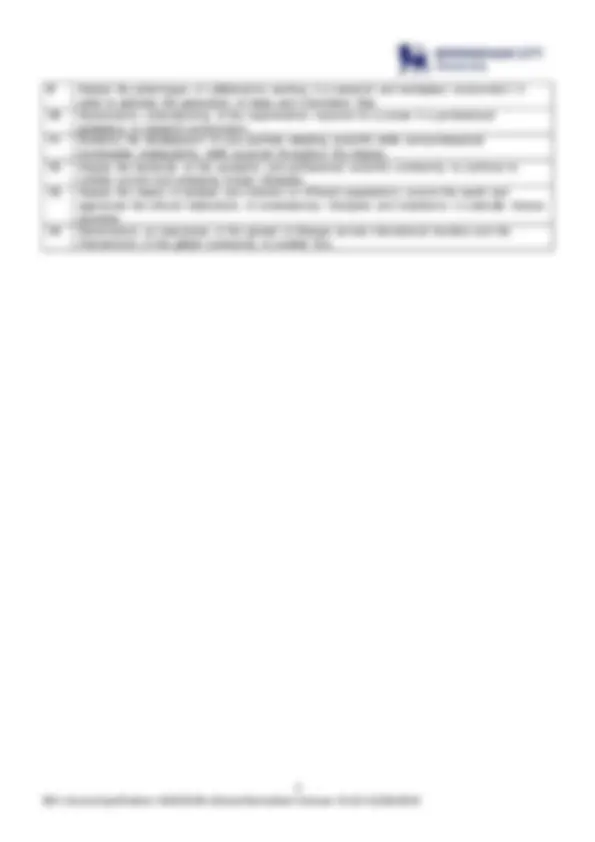
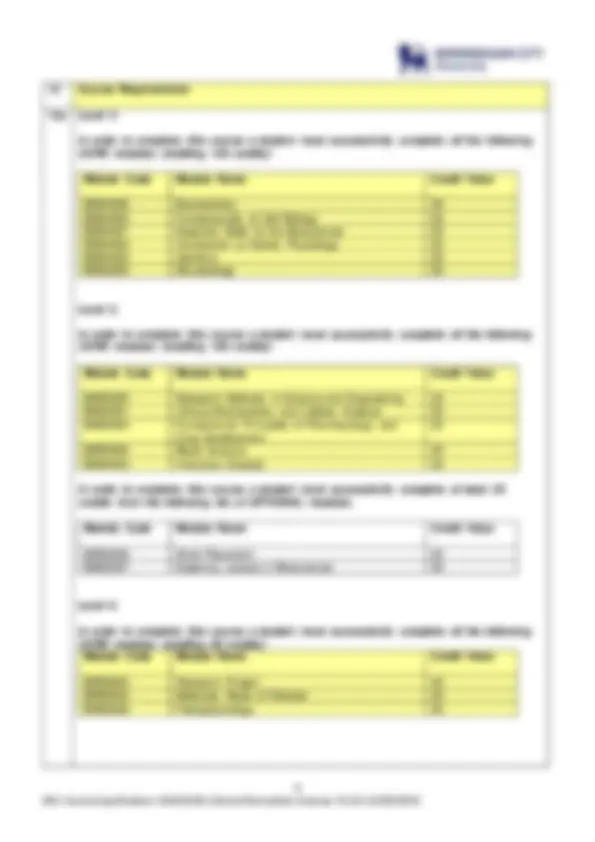
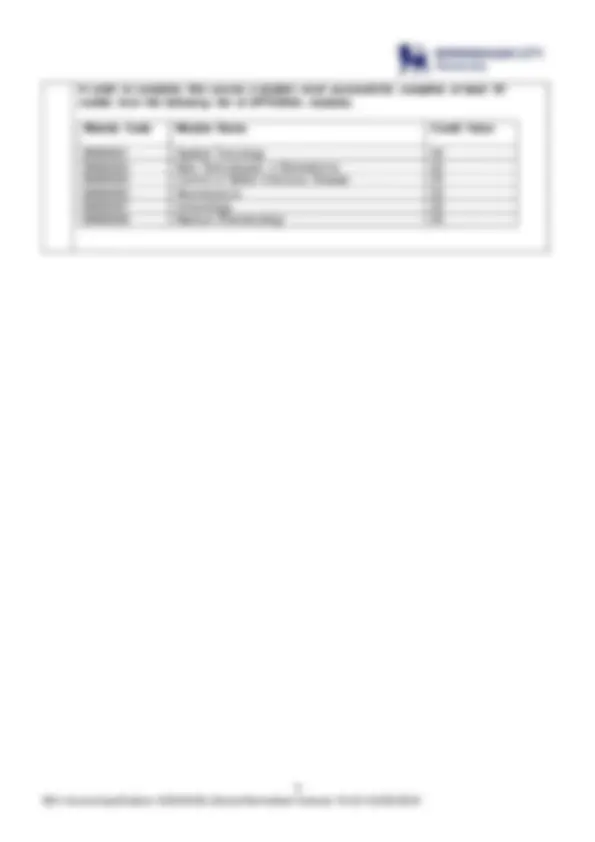
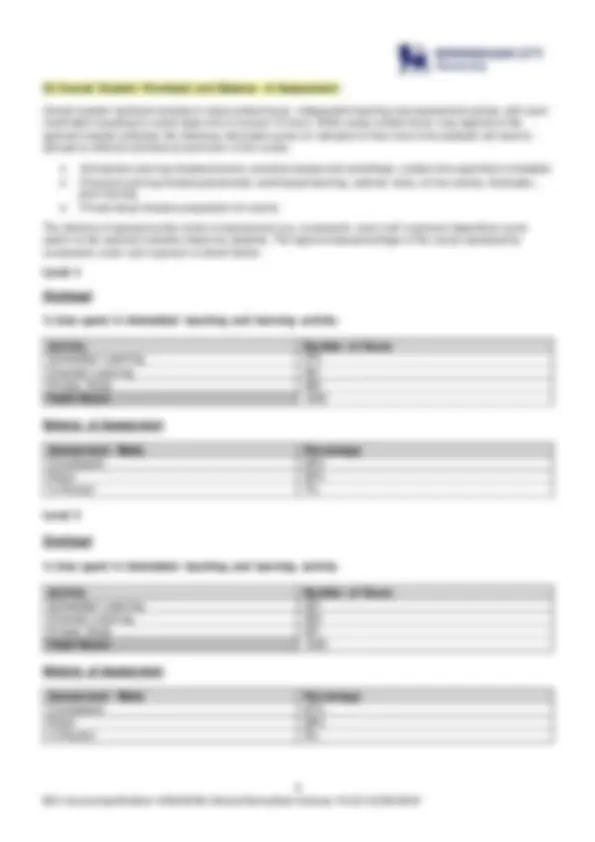
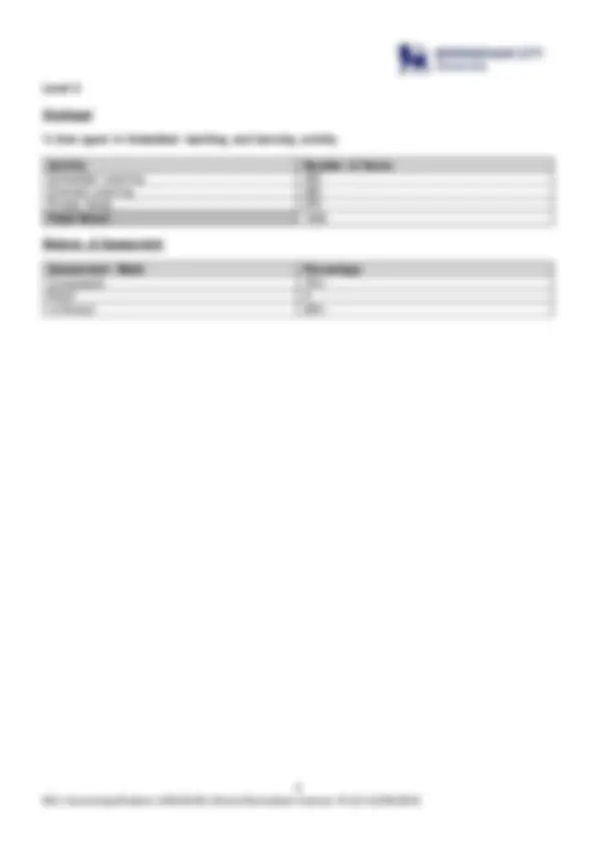


Study with the several resources on Docsity

Earn points by helping other students or get them with a premium plan


Prepare for your exams
Study with the several resources on Docsity

Earn points to download
Earn points by helping other students or get them with a premium plan
Community
Ask the community for help and clear up your study doubts
Discover the best universities in your country according to Docsity users
Free resources
Download our free guides on studying techniques, anxiety management strategies, and thesis advice from Docsity tutors
Information about the BSc (Hons) Biomedical Sciences degree offered by Birmingham City University. The course covers various subjects such as biochemistry, cell biology, genetics, microbiology, and physiology. Students will learn about human diseases, their causes, and contemporary technologies used to combat them. The degree emphasizes critical thinking, independent problem-solving skills, and networking and professional relationship skills. Graduates may pursue careers in medical laboratory assistance, research, teaching, and more.
Typology: Lecture notes
1 / 9

This page cannot be seen from the preview
Don't miss anything!






Course Summary Information 1 Course Title BSc (Hons) Biomedical Sciences 2 BCU Course Code UCAS Code US0625 C 3 Awarding Institution Birmingham City University 4 Teaching Institution(s) (if different from point 3 ) 5 Professional Statutory or Regulatory Body (PSRB) accreditation (if applicable) 6 Course Description
Do you want a career in biomedical sciences? Our practice-led degree offers a unique insight into human life processes, as well as disease and health within the population. You’ll develop a range of practical and analytical skills, with the opportunity to put them into practice during an optional sandwich year work placement. This course is based at our newly extended state-of-the-art £ million campus in Edgbaston, Birmingham. What’s covered in this course? Biomedical sciences embrace a number of important disciplines, including physiology, biochemistry, cell biology, microbiology and genetics. These subjects are of great importance in the provision of healthcare, medical research and underpin the biotechnology and pharmaceutical industries. On this course you will learn about how the human body functions in health and disease, and develop an understanding of the diagnosis, management and treatment of a range of diseases. This degree emphasises critical thinking and independent problem solving skills, which will help you to navigate a successful career after graduation. Throughout this course you will acquire important practical and scientific skills whilst being taught in our new state-of-the-art life sciences laboratories. You will have the opportunity to take an optional sandwich-year placement in an industrial, clinical or research setting between years 2 and 3 of this course. In the final year you will undertake an independent Research Project where you will execute your own experiments under supervision. Graduates may go on to a range of careers directly or after further post-graduate training and study. These careers include medical laboratory assistants, trainee biomedical scientists, physician associates, clinical trials for drug companies, research assistants and research technicians, marketing assistants and medical and scientific representatives. Graduates may also use their qualifications to progress into teaching careers, as well as post-graduate study to obtain MSc, MPhil, Physician Associate/Assistant and PhD qualifications. Exceptional graduates may be able progress into post-graduate Medicine and Dentistry.
7 Course Awards 7 a Name of Final Award Level Credits Awarded Bachelor of Science with Honours Biomedical Sciences 6 360 7 b Exit Awards and Credits Awarded Certificate of Higher Education Biomedical Sciences Diploma of Higher Education Biomedical Sciences Bachelor of Science Biomedical Sciences
8 Derogation from the University Regulations Not applicable 9 Delivery Patterns Mode(s) of Study Location Duration of Study Code Full Time City South 3 years US 0625 10 Entry Requirements The admission requirements for this course are stated on the course page of the BCU website at https://www.bcu.ac.uk/ or may be found by searching for the course entry profile located on the UCAS website. 11 Course Learning Outcomes 1 Demonstrate understanding and scholarship of the diverse subjects encompassed by the biomedical sciences. 2 Develop the learning qualities and reflective practices required to enhance your knowledge and further your professional training. 3 Assess the breadth and complexities of human diseases and demonstrate knowledge of the underpinning causes, and the contemporary technologies, being developed to combat them. 4 Demonstrate knowledge and understanding of the theory and application of the diverse subjects encompassed by the biomedical sciences 5 Demonstrate aptitude and proficiency in a range of laboratory skills and techniques. 6 Plan, implement and complete a piece of original scientific research and appropriately analyse and present data. 7 Evidence networking and professional relationship skills and demonstrate elements of leadership and teamwork. 8 Communicate effectively through different media and demonstrate competencies using different oral and visual methods for disseminating information to a range of audiences.
12 Course Requirements 12 a Level 4: In order to complete this course a student must successfully complete all the following CORE modules (totalling 120 credits): Module Code Module Name Credit Value BMS4000 Biochemistry 20 BMS4002 Fundamentals of Cell Biology 20 BMS4001 Essential Skills for the Biosciences 20 BMS4004 Introduction to Human Physiology 20 BMS4003 Genetics 20 BMS4005 Microbiology 20 Level 5: In order to complete this course a student must successfully complete all the following CORE modules (totalling 100 credits): Module Code Module Name Credit Value BMS5005 Research Methods in Science and Engineering 20 BMS5001 Clinical Biochemistry and Cellular Analysis 20 BMS5004 Fundamental Principles of Pharmacology and Drug Development
BMS5000 Blood Science 20 BMS5002 Infectious Disease 20 In order to complete this course a student must successfully complete at least 20 credits from the following list of OPTIONAL modules. Module Code Module Name Credit Value BMS5006 Work Placement 20 BMS500 7 Exploring careers in Biosciences 20 Level 6: In order to complete this course a student must successfully complete all the following CORE modules (totalling 80 credits): Module Code Module Name Credit Value BMS6004 Research Project 40 BMS6002 Molecular Basis of Disease 20 BMS6006 Pathophysiology 20
In order to complete this course a student must successfully complete at least 40 credits from the following list of OPTIONAL modules. Module Code Module Name Credit Value BMS6001 Applied Toxicology 20 BMS6003 New Technologies in Biomedicine 20 BMS6000 Control of Global Infectious Disease 20 BMS6005 Neuroscience 20 BMS6007 Immunology 20 BMS6008 Medical Pharmacology 20
BMS6008: Medical Pharmacology (20 credits) BMS6004: Research Project (40 credits)
13 Overall Student Workload and Balance of Assessment Overall student workload consists of class contact hours, independent learning and assessment activity, with each credit taken equating to a total study time of around 10 hours. While actual contact hours may depend on the optional modules selected, the following information gives an indication of how much time students will need to allocate to different activities at each level of the course. Scheduled Learning includes lectures, practical classes and workshops, contact time specified in timetable Directed Learning includes placements, work-based learning, external visits, on-line activity, Graduate+, peer learning Private Study includes preparation for exams The balance of assessment by mode of assessment (e.g. coursework, exam and in-person) depends to some extent on the optional modules chosen by students. The approximate percentage of the course assessed by coursework, exam and in-person is shown below. Level 4 Workload % time spent in timetabled teaching and learning activity Activity Number of Hours Scheduled Learning 274 Directed Learning 461 Private Study 465 Total Hours 1200 Balance of Assessment Assessment Mode Percentage Coursework 50% Exam 43% In-Person 7% Level 5 Workload % time spent in timetabled teaching and learning activity Activity Number of Hours Scheduled Learning 227 Directed Learning 422 Private Study 551 Total Hours 1200 Balance of Assessment Assessment Mode Percentage Coursework 67% Exam 28% In-Person 5%